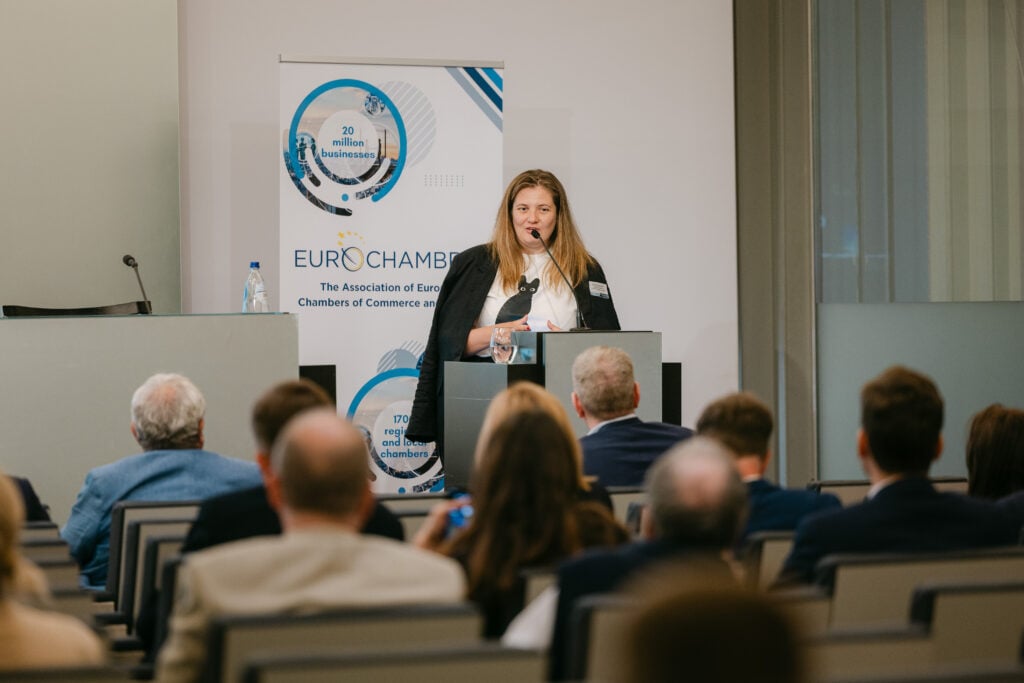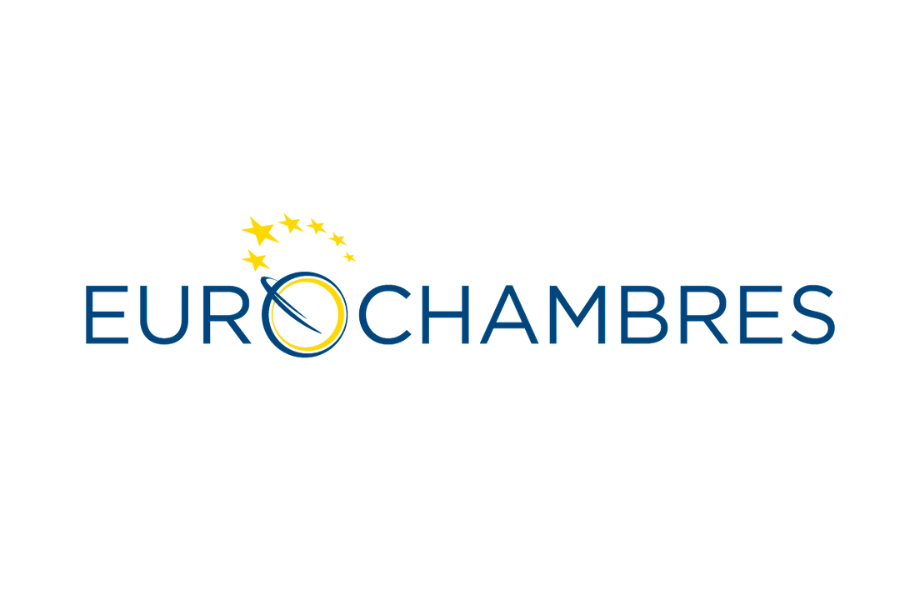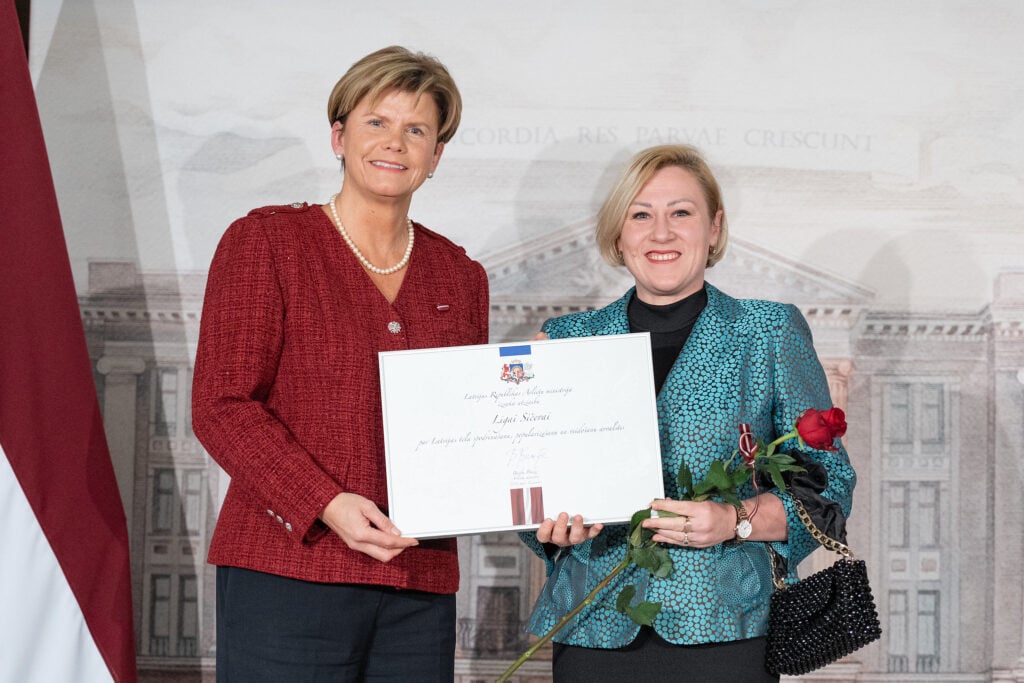Opinion: the European defence industry - between necessity and opportunity. Will Latvia be able to participate fully?
03.07.2025

Katrīna Zariņa,
LCCI Member of the Board, Director of Foreign Affairs
At the end of the month, on 30 June, a high-level forum “Strengthening the European Defence Industry: an economic perspective” was held in Brussels, organised by the LCCI in cooperation with the Association of European Chambers of Commerce and Industry (Eurochambres). It was the first business-led forum of its kind at European level focusing on the growth of the defence industry and its links to economic resilience.
Defence as one of the EU’s top priorities
The Forum made it clear that strengthening the defence industry is now one of the central priorities of the European Union (EU). EU institutions are actively working on new policy frameworks and financial instruments such as the EDF (European Defence Fund), EDIP (European Defence Industry Programme) and the REARM initiative, which will amend the EU Funds regulations to allow the current programming period (2021-2027) to be used also for defence and other strategic needs.
Compared to a few years ago, progress is clear: the industry is growing, competition is increasing, new companies and technologies are emerging. However, this growth also highlights systemic problems that hinder the coherent and effective development of EU capabilities. One of these is the prevalence of a national approach, where each Member State develops its defence policy separately, often with a single customer (the state) and without long-term guarantees for business.
Is a single European defence industry possible?
One of the key questions of the Forum was: is it possible to create a single European defence industry, given the historically fragmented approach? This will only be possible if there is coordinated action and mutual trust between Member States, the panellists said.
Previous divergent national policies have created barriers to both innovation and cross-border cooperation. As several experts said at the Forum, if businesses do not know what will be required of them and what level of order they have to expect, they will not invest. And if each country works only in its own bubble, the industry is unable to exploit the potential of scaling up and integration.
An interesting example was given by the Patria Group, which, by being able to balance the needs of different countries, has developed a cross-border production model that both increases efficiency and reduces costs. Such examples show that a single market in the defence sector is not a utopia, but requires a clear political will.
Opportunity for entrepreneurs. And a responsibility for politicians
The development of the defence industry offers opportunities for many – innovators, manufacturers, service providers, including SMEs. At the same time, the Forum sent a strong message to politicians: without long-term contracts and a clear market for orders, entrepreneurs will perceive the sector as too risky.
The Forum underlined the importance of the place of companies in defence supply chains – especially for those who are yet to enter this segment. The defence industry is increasingly connecting different sectors, from metalworking and IT to logistics and energy. It is no longer a closed environment – it is becoming an integrated part of the overall economic fabric.
The financial sector also has an important role to play here, as it needs to be able to adapt to EU priorities and continue to move away from the traditional perception of defence as “complex and difficult to support”.
Is Europe preparing for yesterday’s war or tomorrow’s?
Andrius Kubilius, European Commissioner for Defence, also spoke at the Forum and asked a fundamental and rhetorical question: ‘Is Europe preparing for yesterday’s war or tomorrow’s war?’
This question captures the essence of the current dilemma: Europe’s ability to defend itself will depend on how quickly it can reorient its industries, investments and thinking towards future solutions. The Commissioner stressed that security is no longer just a military responsibility – it is a shared political and economic choice.
He called on Member States not to wait for external pressure, but to proactively invest in industrial development, develop long-term procurement systems and redesign the EU funds to match today’s risks and opportunities.
Latvia must play an active role
Latvia is located on the EU’s eastern border, which automatically gives us a strategic role. But geography alone is not enough – targeted action is needed. We need to create an environment where businesses can become part of European defence supply chains and at the same time send clear signals to EU partners that we are ready to cooperate.
We, the LCCI, call on the Latvian public sector – both in Riga and in Brussels – to act in a coordinated way, to look beyond the boundaries of a single ministry and to engage in a common discussion at EU level. This is the only way to ensure that Latvian businesses are included in projects that will receive substantial investment in the coming years.
This Forum was more than a discussion – it showed that Latvia has the potential to be an important part of Europe’s security and economic solutions. The question is: will we be able to seize this opportunity?
The LCCI will continue its work on the involvement of Latvian entrepreneurs in the European defence industry, so that our companies also have a place in this strategically important economic sector.
Jaunākās ziņas

10.02.2026
The cost of non-competitive Europe
EU heads of state and government will gather at the picturesque Alden Biesen castle in the east of Belgium on ...

30.01.2026
LCCI EU Project Director Līga Sičeva receives recognition from the Ministry of Foreign Affairs
As part of the events marking the 105th anniversary of Latvia’s international recognition (de jure), Foreign Minister Baiba Braže presented ...

26.01.2026
Interview with Katrīna Zariņa, Chairwoman of the Board of the Latvian Chamber of Commerce and Industry
What could be the biggest challenges for Latvian entrepreneurs this year? The parliamentary elections. Previous experience shows that election years ...